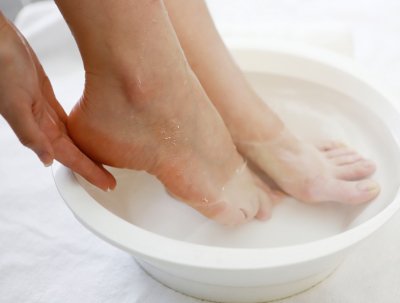The Cases of the Medicated Footbaths and Unnecessary COVID-19 Lab Work: A Look at Health Care FWA
/Two members of the Healthcare Fraud Prevention Partnership (HFPP) were on hand at the 33rd Annual ACFE Global Fraud Conference to present two case studies on fraud, waste and abuse (FWA) in the health care field. In their session, “Health Care: The Power of Leveraging Data Analytics to Identify Fraud, Waste and Abuse,” Richard Haines and Jacob Gray showed how data analytics helped find two instances of fraud that involved health care providers billing for so-called medicated footbaths and for unnecessary additional lab work related to COVID-19 cases.
The “Footbath Scheme,” as Gray called it, involved compounding pharmacies providing a set of medications, including antibiotics, that get dumped into baths of water for soaking feet. This is not an FDA-approved procedure, and there is no clinical indication that this process is effective. However, the ingredients are very expensive and the drugs can be billed at large quantities, therefore creating a prime opportunity for fraudsters. For these injectable drugs to be used for footbaths, large quantities were needed. The data showed large amounts of money were reimbursed for a very small number of patients, and the data helped show some red flags for potential fraud. In a recent case, the owner/operator of a podiatry clinic in Mississippi was indicted last year on charges of conspiracy to commit health care fraud and wire fraud.
HFPP partners also helped uncover a potentially fraudulent scheme involving the COVID-19 pandemic. The need for widespread COVID testing provided this fraud opportunity, and some health care providers added on other lab work for patients in order to get a larger reimbursement from insurance companies. In most cases, COVID-19 tests don’t provide large amounts of reimbursements, so these health care providers added more questionable lab work like respiratory pathogen panels, genetic testing, cardiology tests, antibody testing and others. In many cases, these extra lab tests weren’t necessary, and sometimes they weren’t even provided at all.
Finding these types of data that read like the above cases doesn’t necessarily mean fraud is being committed. However, it does raise red flags of potential fraud.
The HFPP is a partnership of several organizations, including law enforcement, government agencies, Medicaid partners, associations and private payers. The partnership’s purpose is to prevent health care fraud from happening, collaborate with multiple agencies and provide data to track down trends that may uncover potential fraud.
In January, the HFPP released a white paper on FWA in the context of the COVID-19 pandemic. Partners are currently gathering data for their next white paper on FWA in telehealth. You can see the organization’s most recent reports at www.cms.gov/hfpp.



